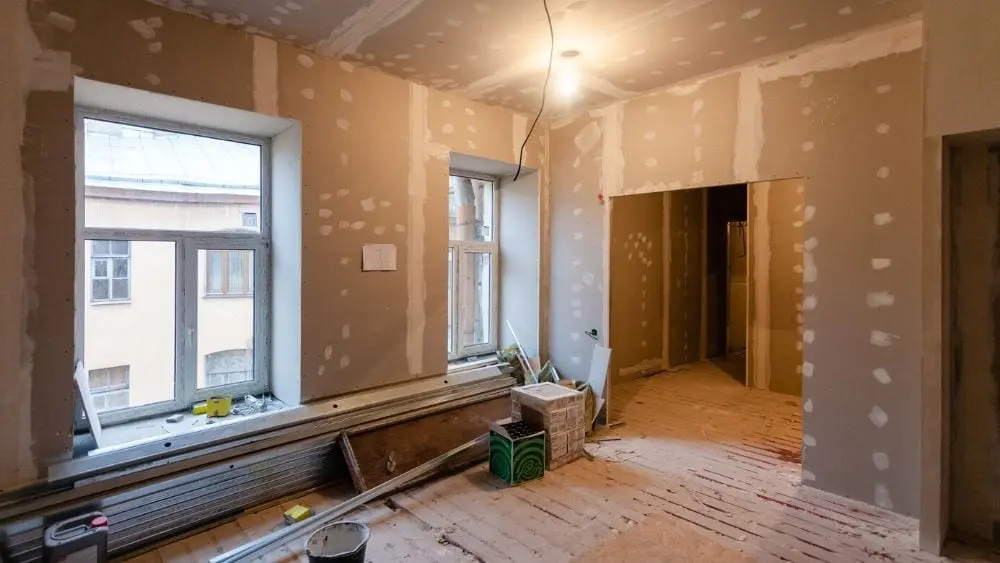
Fires, floods, hurricanes, earthquakes, mudslides and other natural disasters are ever-present risks for homeowners regardless of where they live.
When a disaster destroys a home, the first decision the homeowner needs to make is whether to rebuild. Once that decision has been made, new challenges include hiring a builder, getting building permits and choosing which features of the home to restore, upgrade or let go.
Here’s what you can expect when going through the process of rebuilding a home after a natural disaster:
Finding a Builder
Hiring a builder should be a multistep process, says Teris Pantazes, co-founder of EFynch.com, a website that connects homeowners with handyman services in Baltimore and Washington, D.C.
“Once you’ve decided to rebuild, insurance companies can give some guidance on builders, but the hard work is up to you,” Pantazes says.
To compile a list of potential builders, ask for referrals and perform a web search. Research at least five companies. Drive by other homes they’ve built and talk to the owners. Ask the builders about price points, experiences they’ve had overcoming home-building hurdles, and how they would create the features you’d like to have in your new home.
Obtaining Permits to Rebuild
Many homeowners are familiar with building permits they need to alter their existing residence. After a disaster, an owner may need a permit not only to rebuild, but also to demolish whatever’s left of the original home and clear debris from the lot.
This preparatory work may be done by a company that specializes in demolitions, says Ed Walters, Jr., founder and partner at Walters Homes, a home builder in Barnegat, N.J.
The demolition, or “demo,” contractor should check for underground storage tanks, asbestos, and other potential hazards. The utilities — natural gas and electricity — should be turned off before work is begun as a safety precaution.
Updating to meet new building codes are one reason rebuilt homes often differ dramatically from the original home.
The replacement home typically will have to comply with current building codes, (i.e., rules and regulations,) in the local area. These codes can affect a long list of building attributes, such as the following:
- Lot coverage (how much of the lot the home’s footprint can cover)
- Setback (how far the front of the home must be from the road or beach)
- Home height
- Square footage
- Size of decks
- Environmental protections
Updated building codes are one reason rebuilt homes often differ dramatically from the original home.
For example, Walters says, new beach homes along the New Jersey shore typically must be elevated to a higher degree than older homes that were wrecked by Hurricane Sandy, which struck the area in October 2012.
To raise the home’s elevation, owners typically add an entire level, putting a new parking garage on the ground floor with living space above it. These rebuilt homes are almost always much larger and more costly than the homes they replaced, Walters says. Most of them are vacation homes, not principal residences, too.
“Maybe one percent rebuilt a modest (home) with what they got from the insurance company,” Walters says. “Everybody else found a way to get a mortgage or home equity loan. These properties are so valuable that it doesn’t behoove them from a financial standpoint to build the same small bungalow that was there before.”
Changes in building codes can come as a big surprise to homeowners. So can higher costs for building materials and labor.
“Everything is more expensive,” Walters says. “Lumber, sheetrock, roof shingles, vinyl siding – all the materials it takes to build a home continue to go up 3-5 percent every year. Lumber went up 25 percent last year.”
Safety First
Given the high cost of rebuilding, homeowners might be tempted to reuse components of their original home that weren’t destroyed in the disaster. This approach can either work or prove disastrous.
The Electrical Safety Foundation International, a nonprofit that promotes electrical safety, explains that some water-damaged electrical equipment can be reconditioned, but much of it must be replaced, not reused. Using water-damaged equipment can cause an electrical fire, shock or electrocution — or further damage the equipment.
Homeowners should also think about ways to reduce the risk that their rebuilt home will be destroyed in the same way the original one was, says Richard Frazao, president of Quaketek, a Montreal, Quebec, Canada, company that manufactures seismic friction dampeners.
“The options (to mitigate risk) are endless, but along with each mitigation comes time and cost. You need to evaluate what’s possible and what’s affordable,” Frazao says.
The bottom line is that a disaster-destroyed home can be rebuilt and the new home may be ever better than the old one.

Marcie Geffner is an award-winning freelance reporter, writer and editor in Ventura, California. In the last decade, she has penned more than 1,000 published stories about residential and commercial real estate, banking, credit cards, computer security, health insurance and small business, among other subjects. Editors describe her as “detail-driven,” “conscientious,” “smart” and “incredibly versatile.” Her award-winning reporting has been lauded as “rock solid,” “spot-on relevant,” “informative,” “engaging,” “interesting” and “nuanced.” Her stories have been cited in seven published nonfiction books and two U.S. Congressional hearings.
Prior to her freelance career, Geffner was senior editor of California Real Estate magazine. Later, she became managing editor of Inman.com, an independent real estate news website. She also has prior employment experience in technical writing, corporate communications and employee communications. She received a bachelor’s degree in English with high honors from UCLA and master’s degree in business administration (MBA) from Pepperdine University in Malibu, California. She enjoys reading, home improvement projects and watching seagulls at the beach.
 Ready for a Tiny Home? What You Need to Know Before You Build
Ready for a Tiny Home? What You Need to Know Before You Build